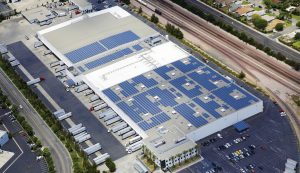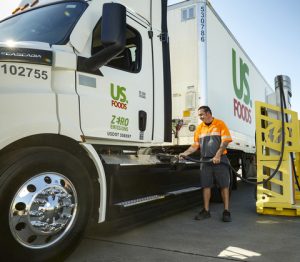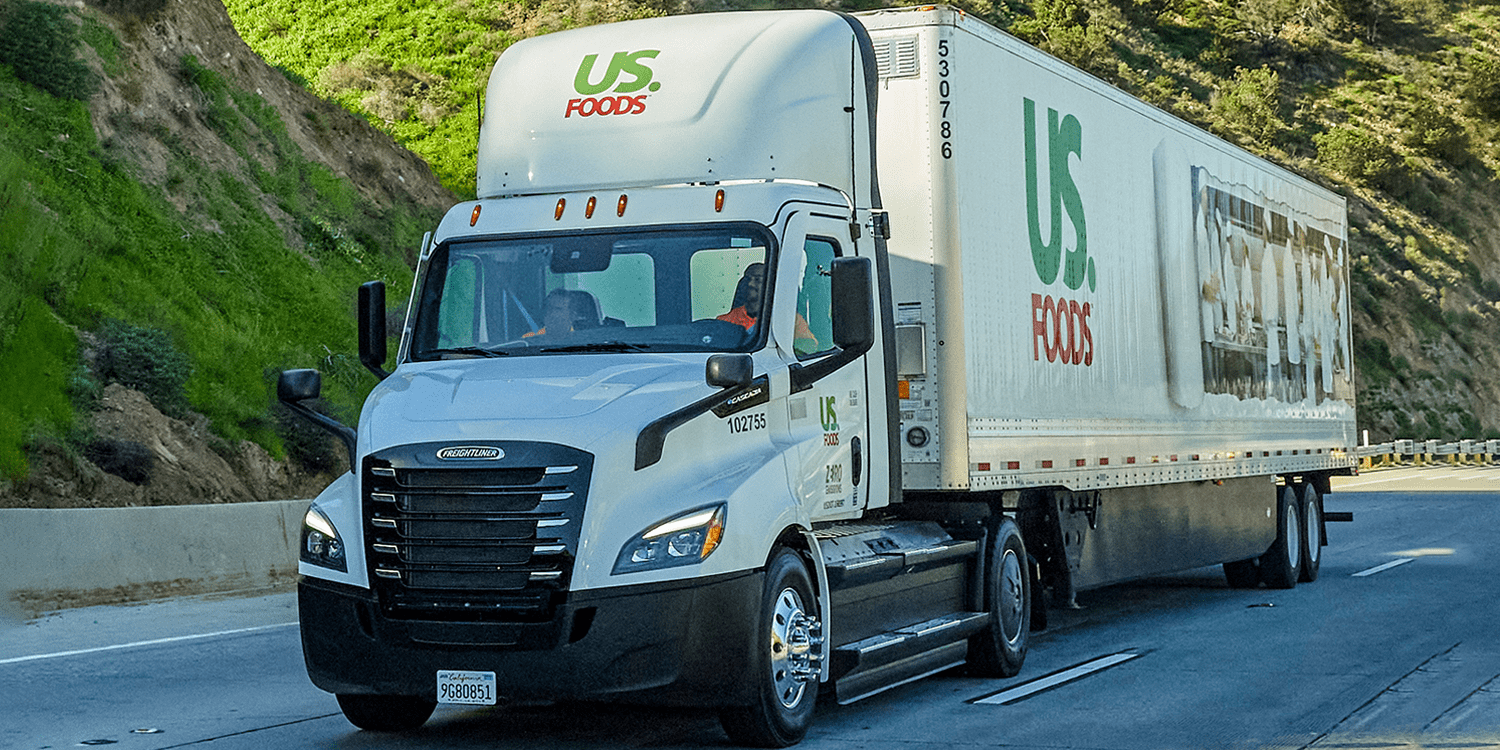US Foods Revolutionizes Fleet with 30 Electric Trucks: Emission Reduction in Action
US Foods Takes the Green Initiative with Electric Semi-Trucks

US Foods electric trucks are making headlines as the food distribution company deploys the first five of an expected 30 electric semi-trucks at its La Mirada, California, distribution center.
US Foods electric trucks are making headlines as the food distribution company deploys the first five of an expected 30 electric semi-trucks at its La Mirada, California, distribution center. The company announced its collaboration with NextEra to construct charging infrastructure for these electric vehicles (EVs), which will be powered through Southern California Edison’s Charge Ready Transport Program.
The remainder of the company’s order is anticipated to be fulfilled by the end of the year. All 30 electric trucks will be based in La Mirada and put into service in 2023, with the goal of cutting greenhouse gas emissions by 32.5 percent by 2032, as announced in the company’s 2022 initiative.
The Benefits of Electric Trucks in the Food Distribution Industry
Adopting electric trucks in the food distribution industry offers several advantages. Firstly, electric vehicles produce zero tailpipe emissions, which contributes to cleaner air quality in the regions they serve. This is particularly important in densely populated urban areas where air pollution levels are often higher.
Secondly, electric trucks can help food distribution companies reduce their overall carbon footprint. By switching to electric vehicles, these companies are directly contributing to the reduction of greenhouse gas emissions, thus playing their part in the global effort to combat climate change.
Enjoying our insights?
Subscribe to our newsletter to keep up with the latest industry trends and developments.
Stay InformedLastly, electric trucks can lead to cost savings for companies in the long run. Although the upfront cost of purchasing electric trucks may be higher, the lower operating costs associated with these vehicles, such as reduced fuel and maintenance expenses, can offset the initial investment over time.
Class 8 Freightliner eCascadia Electric Trucks: A Cleaner Choice

US Foods is working with NextEra to build charging infrastructure at its La Mirada distribution center, ensuring the electric trucks can be efficiently charged and maintained.
The battery-electric Class 8 Freightliner eCascadia single eAxle trucks are designed to reduce fine particulate matter and oxides of nitrogen emissions throughout Southern California. With a range of 230 miles, the company claims these vehicles are ideal for regional delivery needs, while producing zero tailpipe emissions.
US Foods is one of several companies that have purchased Freightliner eCascadias for fleet use. Retailers Meijer and Walmart, Sysco, and trucking firm Schneider are among the companies using the Freightliner EV semis, which debuted in May 2022.
The Role of Charging Infrastructure in Supporting Electric Truck Deployment
The availability of adequate charging infrastructure is crucial for the successful deployment of electric trucks. US Foods is working with NextEra to build charging infrastructure at its La Mirada distribution center, ensuring the electric trucks can be efficiently charged and maintained.
Additionally, the company is participating in Southern California Edison’s Charge Ready Transport Program, which aims to support the expansion of electric vehicle charging infrastructure for medium and heavy-duty vehicles. The program offers incentives and assistance for the installation of charging infrastructure, making it easier for businesses like US Foods to transition to electric fleets.
US Foods’ Comprehensive Emission Reduction Strategy

The food distributor has been working to deploy EVs into its fleet since at least 2021 when the company won a $1.8 million grant to build out the infrastructure of its La Mirada facility, according to its 2021 Corporate Sustainability Report.
In addition to its EVs, US Foods has pledged to reduce emissions through other programs, such as optimizing routes to reduce miles driven, deploying new vehicle technology, and investing in alternative fuels like compressed natural gas, renewable natural gas, and renewable diesel fuel.
The food distributor has been working to deploy EVs into its fleet since at least 2021 when the company won a $1.8 million grant to build out the infrastructure of its La Mirada facility, according to its 2021 Corporate Sustainability Report. This commitment to sustainability demonstrates US Foods’ dedication to reducing its environmental impact and embracing innovative solutions in the food distribution industry.
A Significant Milestone in Sustainable Food Distribution
The deployment of 30 electric trucks by the end of 2023 “would be among the largest single-site deployments of electric trucks across the food distribution industry,” the company said in the report. This move marks a significant milestone in sustainable food distribution, setting an example for other companies to follow suit.
For more information on the growth of the food transportation industry, visit here.
About US Foods:
US Foods is a leading food distribution company in the United States, serving a wide range of customers, including independent and multi-unit restaurants, healthcare and hospitality entities, government and educational institutions. With a vast network of distribution centers and a diverse product portfolio, US Foods aims to provide high-quality food products and innovative culinary solutions to its customers.
Committed to sustainability and reducing its environmental impact, US Foods has been working on adopting greener transportation solutions, such as electric trucks, to minimize greenhouse gas emissions. The company’s efforts to embrace sustainable practices extend to other areas as well, including reducing waste, optimizing routes, and investing in alternative fuels. By focusing on innovation and sustainability, US Foods strives to create a positive impact on the food distribution industry and the communities it serves.


















